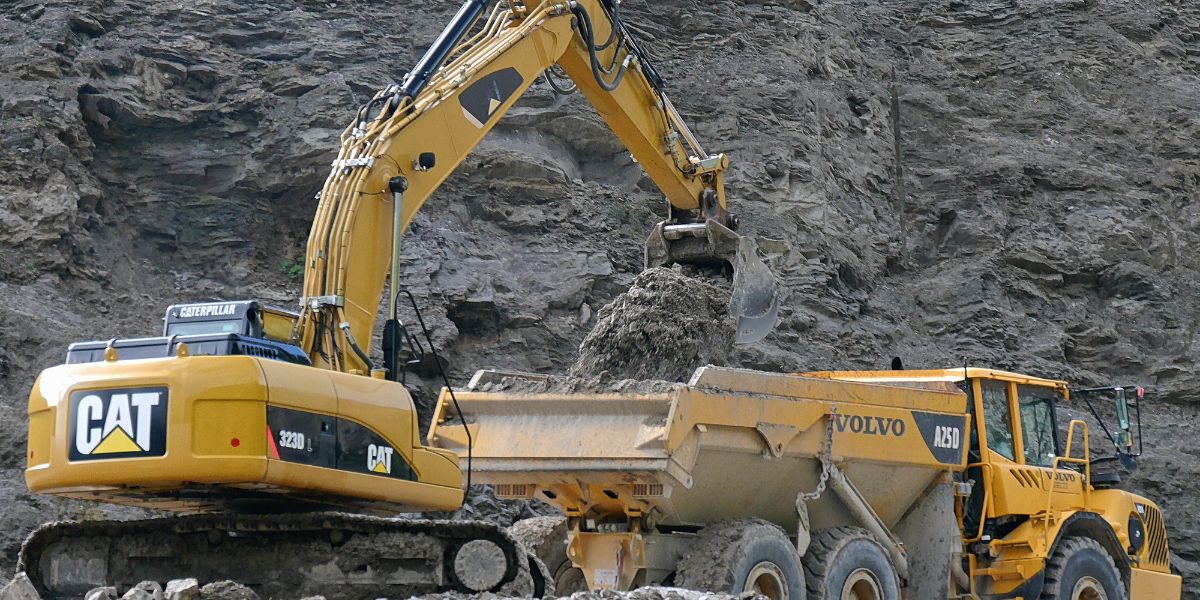10 Smart Ways Construction Fleets Can Cut Fuel Use Without Sacrificing Productivity

Rising fuel prices, slimmer margins, and mounting sustainability expectations are putting construction fleets under increasing pressure to improve fuel efficiency and operational performance. With tight project schedules and ever-evolving environmental goals, achieving operational efficiency without compromising output is now a necessity, not a bonus.
Fuel efficiency sits at the centre of this challenge.
Smart, strategic fuel use doesn’t mean sacrificing site productivity or slowing progress. In fact, with better data and sharper fleet management, it’s possible to reduce fuel consumption while improving vehicle performance, driver safety, and operational visibility.
Here are 10 practical, data-driven strategies construction fleets can adopt today to cut fuel use without compromising productivity on site.
1. Reduce Idling with Telematics Insight
On busy construction sites, idling is common but costly. From waiting on materials to queuing for site access, engines are often left running unnecessarily.
With Fleetclear Connect and True Idle metrics, fleet managers can distinguish between necessary operational idling when using power take off and wasteful downtime. This data enables training and policy changes to reduce idle time without slowing work, delivering measurable fuel savings and improving fleet productivity.
2. Plan Smarter Routes with Multi-Drop Logic
Effective construction logistics depends on strategic route planning especially when dealing with multi-site projects and time-sensitive deliveries.
Smart multi-drop sequencing ensures heavier or time-critical deliveries are made first, reducing mileage, improving fuel efficiency, and streamlining construction logistics. Fleetclear’s real-time vehicle tracking and geo-fencing tools also help avoid congestion, and clean air zones as well as detecting detours, and keep jobs on schedule.
3. Promote Fuel-Efficient Driving Behaviour
Driver habits directly influence fuel consumption. Harsh braking, excessive acceleration, and aggressive cornering all burn fuel and accelerate wear.
Performance monitoring tools from Fleetclear provide visibility into these behaviours, allowing fleet managers to offer targeted coaching and reward fuel-conscious driving. This results in not just fuel savings, but improved safety and reduced maintenance.
4. Monitor Vehicle Health to Improve Performance with Vehicle Checks
Maintaining optimum vehicle performance is key to reducing fuel usage. Regularly monitoring engine diagnostics, fluid levels, and tyre pressure helps identify small issues before they cause inefficiency or breakdowns.
Fleetclear’s diagnostic tracking allows engine run time to be monitored and third party platforms can be integrated.

5. Identify Underperforming Vehicles Early
When one vehicle suddenly consumes more fuel than the rest, something’s wrong. It may be a sensor fault, a dragging brake, or even just underinflated tyres.
Fleetclear's performance dashboards flag anomalies in real time, enabling swift action to optimise vehicle performance and increase efficiency overall.
6. Balance Vehicle Utilisation Across the Fleet
In many construction fleets, certain vehicles are overused while others sit idle especially during intense project phases.
Fleetclear Connect gives managers a fleet-wide view of usage, allowing for smarter scheduling and more balanced dispatching. This avoids excessive wear on specific vehicles and improves overall fleet efficiency.
7. Consolidate Systems to Eliminate Data Silos
Using separate systems for tracking, compliance, servicing, and reporting can create blind spots. Without integrated data, inefficiencies go unnoticed.
Fleetclear offers a single platform where all key data from fuel efficiency to driver behaviour is visible in one place. This accelerates decision-making and helps construction fleets spot hidden opportunities for fuel savings.
8. Educate Operators Using Real-World Site Data
Dashcams and DVR systems aren’t just for incidents they’re a goldmine for driver coaching.
By reviewing real footage and behaviour analytics, trainers can show drivers exactly how certain habits waste fuel. Whether it’s unnecessary idling or inefficient load handling, real-world examples lead to more impactful learning.
9. Make Data-Led Procurement Decisions
Fleet data doesn’t just help you manage operations it should influence your buying choices.
If your telematics system shows that a certain vehicle type is regularly underloaded or overpowered for its role, it may be time to downsize or spec differently. This prevents long-term fuel waste and aligns with project-specific requirements for construction logistics.

10. Use Alerts to Prevent Fuel Theft and Misuse
Fuel theft or even unintentional misuse can quietly erode budgets.
Set geofenced alerts and refuelling notifications through Fleetclear Connect to detect unusual fuel activity. Custom reporting enables fast investigation, adds a layer of accountability across the entire fleet, and can integrate with fuel card systems.
Summary
With pressure mounting on budgets and sustainability alike, every litre saved counts.
By combining real-time data, smart routing, predictive diagnostics, and integrated fleet management, you can reduce fuel use without compromising productivity, site performance, or delivery schedules.
Whether you manage five vehicles or five hundred, Fleetclear can help you unlock meaningful fuel savings, boost operational resilience, and build a future-ready fleet.
To explore how you can cut fuel costs in your fleet, book a demo or speak to our team on +44 (0)1386 630 155.
Drive your business forward with Fleetclear.
Contact our team to book a demo and start your journey towards a safer, more efficient and compliant fleet.

